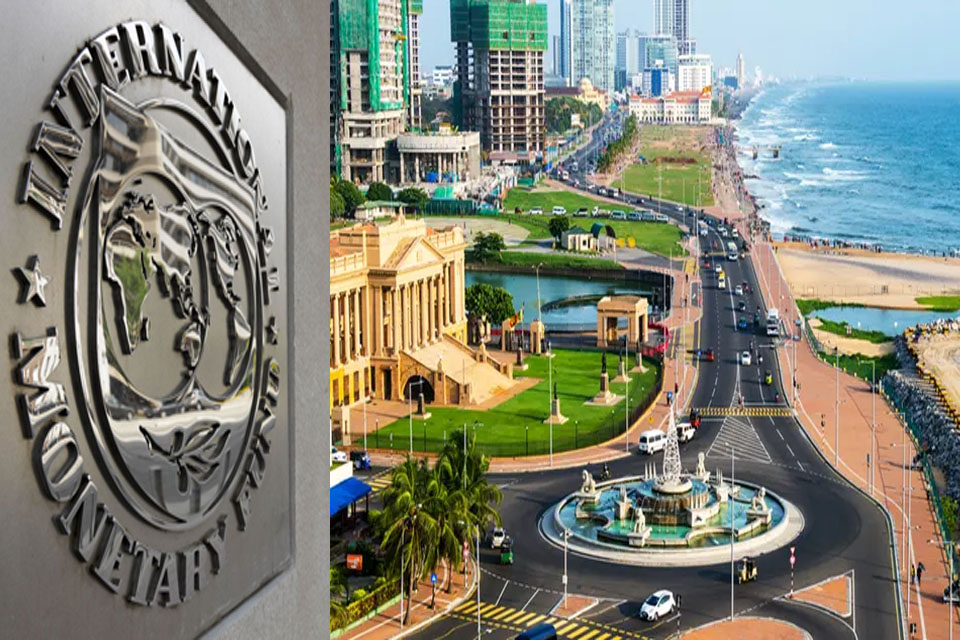The team of officials from the International Monetary Fund who visited Sri Lanka said that the objectives of the new IMF-supported program will be to restore macroeconomic stability and debt sustainability, while protecting the poor and vulnerable, safeguarding financial stability, and stepping up structural reforms to address corruption vulnerabilities and unlock Sri Lanka’s growth potential.
In a statement issued at the conclusion of the visit the team said that discussions with the Sri Lankan authorities on economic policies and reforms to be supported by an IMF Extended Fund Facility (EFF) arrangement were constructive and productive.
‘Significant progress was made and discussions will continue virtually towards reaching a staff-level agreement on the EFF arrangement in the near term’.
The team observed that Sri Lanka is going through a severe economic crisis and the economy is expected to contract significantly in 2022, while inflation is high and rising. The critically low level of foreign reserves has hampered the import of essential goods. During the in-person visit, the team witnessed some of the hardships currently faced by the Sri Lankan people, especially the poor and vulnerable who are affected disproportionately by the crisis.
Because public debt is assessed as unsustainable the IMF’s Executive Board approval will require adequate financing assurances from Sri Lanka’s creditors that debt sustainability will be restored.
The team pointed out that given the low level of revenues, far-reaching tax reforms are urgently needed to achieve these objectives. Other challenges that need addressing include containing rising levels of inflation, addressing the severe balance of payments pressures, reducing corruption vulnerabilities and embarking on growth-enhancing reforms.
However, the authorities’ monetary, fiscal policy and other actions since early April were important first steps to address the crisis.
The IMF team was in Sri Lanka from 20-30th June.
The team was led by Peter Breuer and Masahiro Nozaki to discuss IMF support to Sri Lanka and the authorities’ comprehensive economic reform program. The Deputy Director of the IMF’s Asia and Pacific Department Anne-Marie Gulde-Wolf also participated in the discussions.
The IMF team held meetings with President Gotabaya Rajapaksa, Prime Minister and Finance Minister Ranil Wickremesinghe, Central Bank of Sri Lanka Governor Dr. P. Nandalal Weerasinghe, Secretary to the Treasury K M Mahinda Siriwardana, and other senior government and CBSL officials. It also met with Parliamentarians, representatives from the private sector, civil society organizations, and development partners.
Read the IMF team’s full statement below:
An International Monetary Fund (IMF) mission team led by Messrs. Peter Breuer and Masahiro Nozaki visited Colombo from June 20 to 30, 2022 to discuss IMF support for Sri Lanka and the authorities’ comprehensive economic reform program. Ms. Anne-Marie Gulde-Wolf, Deputy Director of the IMF’s Asia and Pacific Department, participated in policy discussions.
At the end of the mission, Messrs. Breuer and Nozaki issued the following statement:
“Sri Lanka is going through a severe economic crisis. The economy is expected to contract significantly in 2022, while inflation is high and rising. The critically low level of foreign reserves has hampered the import of essential goods. During the in-person visit, the team witnessed some of the hardships currently faced by the Sri Lankan people, especially the poor and vulnerable who are affected disproportionately by the crisis. We reaffirm our commitment to support Sri Lanka at this difficult time in line with the IMF’s policies.
“The authorities’ monetary, fiscal policy and other actions since early April were important first steps to address the crisis. The team had constructive and productive discussions with the Sri Lankan authorities on economic policies and reforms to be supported by an IMF Extended Fund Facility (EFF) arrangement. The staff team and the authorities made significant progress on defining a macroeconomic and structural policy package. The discussions will continue virtually with a view to reaching a staff-level agreement on the EFF arrangement in the near term. Because public debt is assessed as unsustainable, Executive Board approval would require adequate financing assurances from Sri Lanka’s creditors that debt sustainability will be restored.
“In this context, discussions focused on designing a comprehensive economic program to correct the macroeconomic imbalances, restore public debt sustainability, and realize Sri Lanka’s growth potential. Discussions advanced substantially during the mission, including on the need to reduce the elevated fiscal deficit while ensuring adequate protection for the poor and vulnerable. Given the low level of revenues, far-reaching tax reforms are urgently needed to achieve these objectives. Other challenges that need addressing include containing rising levels of inflation, addressing the severe balance of payments pressures, reducing corruption vulnerabilities and embarking on growth-enhancing reforms. The authorities have made considerable progress in formulating their economic reform program and we are looking forward to continuing the dialogue with them.
“The IMF team held meetings with President Gotabaya Rajapaksa, Prime Minister and Finance Minister Ranil Wickremesinghe, Central Bank of Sri Lanka Governor Dr. P. Nandalal Weerasinghe, Secretary to the Treasury K M Mahinda Siriwardana, and other senior government and CBSL officials. It also met with Parliamentarians, representatives from the private sector, civil society organizations, and development partners.
“We would like to thank the authorities for the candid approach and warm hospitality and are looking forward to continuing our discussions in support of Sri Lanka and its people.”





